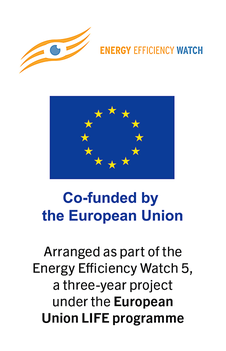Search eceee proceedings
Idle electricity as energy conservation within Volvo Construction Equipment
Panel: 3. Energy management: the nuts and bolts
Authors:
Johan Wollin, Volvo Construction Equipment, Belgium
Josefine Rasmussen, Department of Management and Engineering (IEI), Division of Business Administration, Linköping University, Sweden
Patrik Thollander, Department of Management and Engineering (IEI), Division of Energy Systems, Linköping University, Sweden
Per-Erik Johansson, Dynamate Industrial Services AB, Sweden
Therese Nehler, Linköping university, IEI/Department of Management and Engineering, The division of Energy Systems, Sweden
Abstract
The persisting energy efficiency gap calls for measures to improve energy performance. Investments in new technologies are an important means to improve industrial energy efficiency or energy conservation, yet insufficient. Therefore, there is a need to also consider energy management. The Volvo Construction Equipment case study illustrates that significant energy conservation and energy efficiency can be achieved in non-energy intense SME’s. The case study used lean manufacturing thinking ways to achieve cost reductions whilst at the same time contributing to Environmental care. The success factor in this case study is due a cost oriented energy strategy which contributes to building a conscious culture and awareness around energy conservation. Further enablers are due to focused priority setting based on pareto thinking, clear performance index definitions and challenging target setting, frequent status reporting to decision makers along with a focus on low implementation cost. The communication to decision makers made use of lean manufacturing A3 thinking where this problem solving tool was adapted to become a visual dashboard with clear data, targets and status for all impacted sites. A novel performance index called Relative Idle electricity was developed where ten consecutive hours during the non-production time in the weekend was divided with ten consecutive production hours the following working day. This enables comparison and competition between plants despite different size and differences in production equipment and technology. Over a time period of 36 months the total electricity consumption of Volvo Construction Equipment was reduced with 23% for their seven largest plants. The idle electricity consumption was reduced with 45% for the same time period and plants. A total of 18.2 GWh’s of energy conservation and energy efficiency was implemented during the last 24 months for the ten largest plants. The results of the Volvo Construction Equipment case study thus show that incorporation of lean manufacturing principles into operational activities, strategy, control and culture, significantly contributes to industrial energy conservation and energy efficiency. This perspective on energy management will thus improve energy performance in industry.Downloads
Download this presentation as pdf: 3-083-16_Wollin_presentation.pdf














